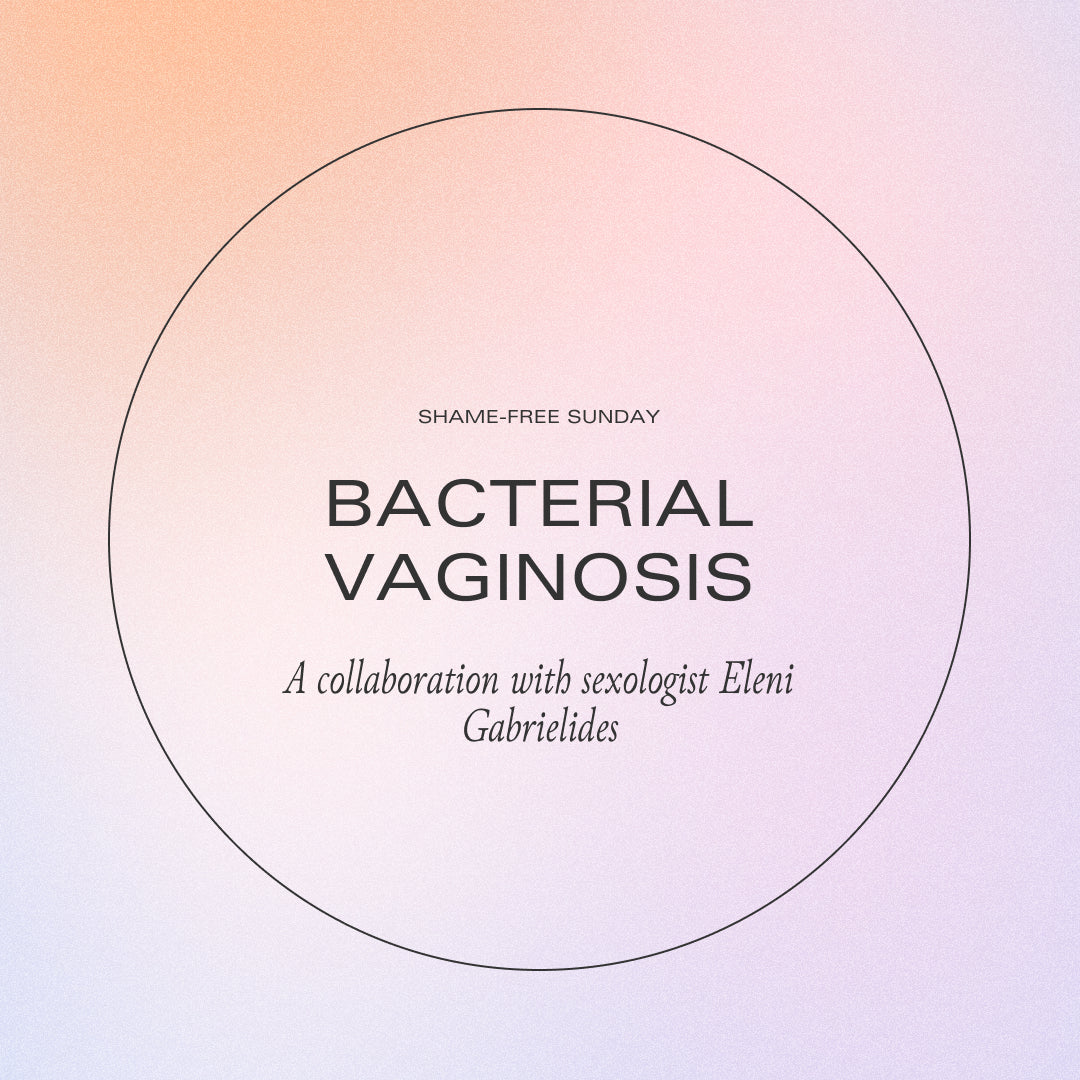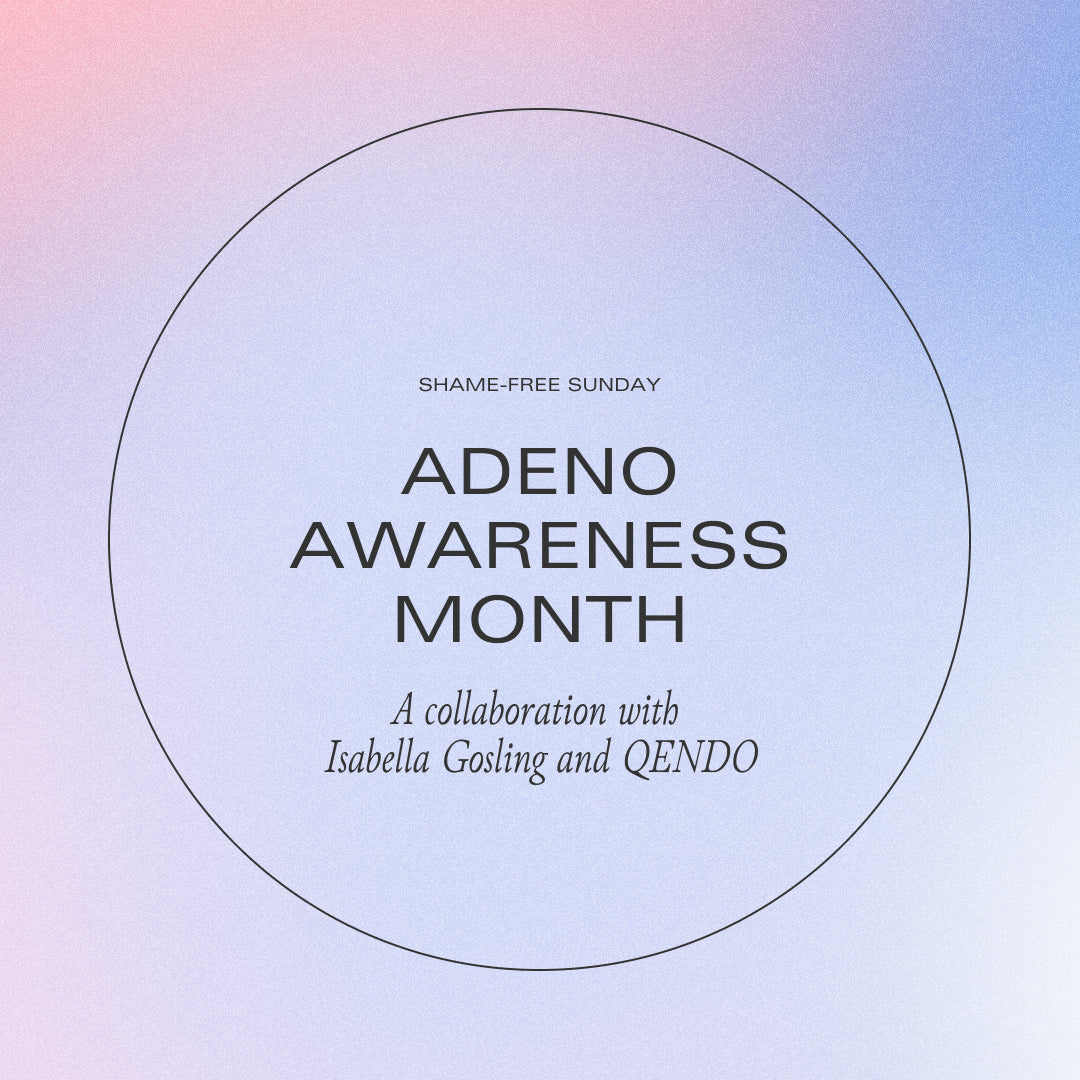A brief reminder of STIs vs. STDs
STIs = sexually transmitted infections. STDs = sexually transmitted diseases. An STI is only considered a disease when it causes *symptoms.* Infections can lead to diseases, and typically a disease suggests that a person has a medical problem with obvious signs and symptoms. What's very important to note here is that many STDs are asymptomatic so the sexually transmitted virus or bacteria can be described as creating an infection which may or may not result in a "disease" – chlamydia, gonorrhea, herpes, and human papillomavirus (HPV), to name a few.
The facts
50% of sexually active people will have at least one STI by age 25 and many STIs are on the rise. So why is there still so much shame and stigma around something so common?

Unpacking shame and stigma around STIs
Negative attitudes towards STIs continue to perpetuate silence in those who experience them. When we keep incredibly normal and common issues such as STIs in the closet, shame and stigma define the narrative. People who contract an STI may see themselves as unworthy of dating and relationships experiencing sexual pleasure in any way. At its worst, shame and stigma can drastically effect mental wellbeing.
Just as it's not right to shame someone for getting the Flu, it's absolutely not okay to shame people for having an STI.

Antidotes to STI shame
Self talk
YOU are not defined by your STI status (or your past, career, chronic illness, emotions, the list goes on...).You are worthy of every bit of connection, relationship and love you desire.
Language check
As sexual health educator, Jenny Waugh (@sexpositivesexed) says, “Clean & "dirty" are for dishes, not people." Having an STI does not make you a dirty person. Our society often associates people with STIs with words like "loose" or "damaged goods”. Stop 👏 slut 👏 shaming 👏 people 👏 with 👏 STIs! (@safe.slut has some fantastic content around this - very worth a follow).

Education
Know the facts: If everyone was educated in how STIs actually work and how common they are, there wouldn’t be such a stigma around them
Know the status: Most STIs are asymptomatic so the only way to know your status is to GET TESTED!
Conversation
In general: Shame dies when stories are told. The more we talk about it with people in our lives, regardless of our status, the more shame starts to peel away.
On apologising: Never apologise for having an STI: apologising implies you did something bad or made poor choices when really, you simply have a biological infection that could happen to anyone.
On disclosure: Remember that STI disclosure is a two way street: when you are disclosing your positive STI status, your partner's sexual health history is equally important. They might not have been tested and therefore not actually *know* their own status... which brings us to the most important point:

Resources and Citations
Safe Slut: HSV empowerment, sex and body positiveJenny Waugh: Sex positive sex education
MakeLoveNotPorn: Navigating Real World Sex While STI Positive
Healthline: The One Difference Between STIs and STDs — and How to Minimize Your Risk




1 comment
Winnifred
Cured from Hsv-2, via… R.buck ler1 1 ‘ ‘ [ g ma i l…… c o m ],…
I lives in Tucson, Arizona.
(Herpes cure)..
win Ex lover back…….
Solve relationship/marriage problem…
Cured from Hsv-2, via… R.buck ler1 1 ‘ ‘ [ g ma i l…… c o m ],…
I lives in Tucson, Arizona.
(Herpes cure)..
win Ex lover back…….
Solve relationship/marriage problem…